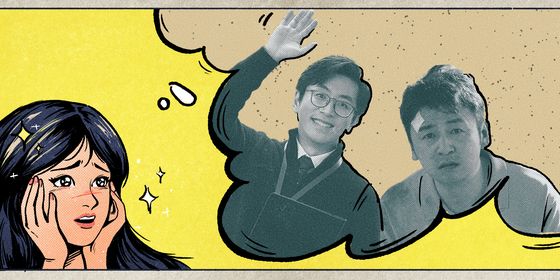The November 11 shopping festival means buying from “sales demons,” paying “IQ taxes,” and getting “grass-planted” by livestreamers
November 11 may still be over a week away, but Chinese netizens have already plunged into the e-commerce battle of “Singles Day (光棍节 Guānggùnjié),” the annual, and now seemingly weeks-long, online buying frenzy that officially takes place on the 11th day of the 11th month.
Presales (预售 yùshòu) on e-commerce sites like Taobao and JD started on October 20, with livestreamers taking to the airwaves to offer various discounts (折扣 zhékòu) and reductions to customers who spend above a certain amount (满减 mǎnjiǎn). Among these livestreamers are lipstick-selling guru Li Jiaqi (李佳琦) and Weiya (薇娅), who is best known for selling a 40 million yuan space rocket on her channel in 2020, are two notorious “sales demons (带货魔鬼 dàihuò móguǐ)” attracting huge numbers of viewers and sales. On the night of October 20 alone, Li sold goods worth 10.65 billion RMB, while Weiya’s total came to 930 million RMB.
Netizens self-mockingly complained on the internet: “这简直是薇机四伏,琦虎难下 (Zhè jiǎnzhí shì Wēi-jī sìfú, Qí-hǔ nánxià, Weiya’s sales are buried everywhere, and Li Jiaqi’s selling ability traps customers). 薇机四伏 is a homophone of the chengyu 危机四伏 (wēijī sìfú), which means dangers are lurking everywhere, while 琦虎难下 is a homophone of 骑虎难下 (qíhǔ nánxià), literally “it’s difficult to dismount a tiger,” meaning someone has no way to stop halfway through a project.
Shopping addicts greet November with what they call “pre-slimming (预瘦)” since 售 and 瘦 are pronounced the same way in Chinese. It pokes fun at the fact that shopaholics who have already blown their budget will probably have to subsist on cheap food, or 吃土 (chītǔ, literally “eat soil”), for the rest of the month. “I have spent all of my balance on tonight’s presales, and have already begun to live by ‘eating soil’ alone. November starts with pre-slimming (我为了今晚的预售花光了余额,已经开始吃土生活,十一月是从预瘦开始的 Wǒ wèile jīnwǎn de yùshòu huāguāngle yú’é, yǐjīng kāishǐ chītǔ shēnghuó, Shíyīyuè shì cóng yùshòu kāishǐ de).” Or: “For other people, November is about considering how to get more deals, but I have already spent everything (别人的十一月都是想着怎么再冲一波,而我已经提前预瘦了 Biérén de Shíyīyuè dōu shì xiǎngzhe zěnme zài chōng yì bō, ér wǒ yǐjīng tíqián yùshòu le).”
Livestreamers have an impressive ability to plant in people’s heads that they absolutely need a certain product, or what netizens call “plant grass (种草 zhòngcǎo).” The slang term comes from a Chinese saying which refers to the hardiness of wild grasses: “Even a prairie fire cannot burn the grass, it grows again when the spring breeze comes (野火烧不尽,春风吹又生 Yěhuǒ shāo bú jìn, chūnfēng chuī yòu shēng).” Netizens cry on social media: “Ah, Li Jiaqi made me want this lipstick again. If I had money, I would clean out his entire studio (啊,我又被李佳琦种草了这个口红。要不是我没钱,李佳琦直播间会被我买空 Ā, wǒ yòu bèi Lǐ Jiāqí zhòngcǎole zhège kǒuhóng. Yàobúshì wǒ méiqián, Lǐ Jiāqí zhíbōjiān huì bèi wǒ mǎikōng).”
The opposite of grass-planting, “weeding (拔草 bácǎo, pulling grass),” refers to eliminating one’s impulse to spend, either by buying the good or actually showing some restraint. Sometimes the desire is smothered simply because of an empty purse: “This pair of boots is a little bit expensive, and I have no money for it. Forget it, I will weed this grass (这双靴子有点小贵,我没钱了。算了,拔草 Zhè shuāng xuēzi yǒudiǎn xiǎoguì, wǒ méiqián le. Suàn le, bácǎo)!” Both grass-planting and weeding can be used to refer to other kinds of desires that take root in people’s minds due to the recommendation of others. For example: “My classmate made me want to see this movie, and I will scratch that itch this afternoon (被同学种草了一部电影,今天下午就去拔了它 Bèi tóngxué zhòngcǎole yí bù diànyǐng, jīntiān xiàwǔ jiù qù bále tā)!”
Sometimes netizens find out only after their purchase that they have got the wrong item, don’t really need the item, or have been duped into paying a higher price than necessary. Then they must console themselves by calling this “unjust money (冤枉钱 yuānwàngqián)” or an “IQ tax (智商税 zhìshāngshuì)” they’ve paid due to a lack of judgment.
Lured by various techniques of grass-planting, netizens often lament: “I paid the IQ tax again for a web-celebrity’s product (又交了一次网红产品的智商税 Yòu jiāole yí cì wǎnghóng chǎnpǐn de zhìshāngshuì).” Spendthrifts may even say, in self-mockery: “I have never evaded the IQ tax (在智商税这块,我从不偷税漏税 Zài zhìshāngshuì zhèkuài, wǒ cóng bù tōushuì lòushuì).” Celebrity-endorsed goods and fad items are among the most commonly IQ-taxed purchases, as are health and “wellness (养生 yǎngshēng, ‘life-nourishing’)” products and cosmetics purporting to improve one’s physical well-being.
And even though paying the IQ taxes can take a heavy toll, big spenders can console themselves on November 11 by proudly declaring: “咱们也都是参加过百亿项目的人了 (Zánmen yě dōu shì cānjiāguo bǎiyì xiàngmù de rén le, We have all participated in a business project worth tens of billions).”












